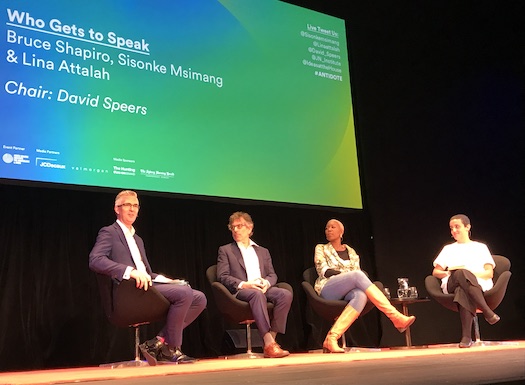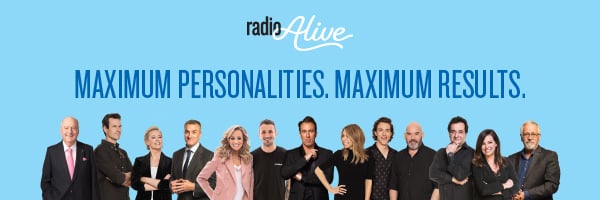Who gets to speak, is one of the questions being tackled at a session in today’s Antidote talks at the Sydney Opera House.
In a session hosted by David Speers, speakers Sisonke Msimang, Lina Attalah and Bruce Shapiro discussed who gets to speak aboutj important social issues, and who doesn’t.
The session was presented with sponsorship from the Judith Nielsen Institute for Journalism and Ideas.
What are the rules of the road when it comes to free speech?
The baseline right of free speech means “the freedom of speech for a person who thinks differently,” according to Bruce Shapiro. But that abstract concept is also overlaid by social and governmental rules.
If we believe that free speech is important, how do you deal with the consequences of free speech, if it is hate speech? was a question posed by Speers. “The current tenant of Pensilvania Avenue in the US mobilizes free speech in an effort to shut down civil rights,” replied Shapiro.
“The debate is on a different scale when you live in Egypt,” commented Lina Attalah.
“It is a reversal of what was just said. The media has been re-nationalized, the state is again in tight control and ownership of the media. The national media is already owned by government, and the current government is now buying and acquiring private media. Independent websites like mine are being blocked in Egypt.”
Attalah’s life is under constant threat but she intends to continue to publish independent journalism. “You have to continue to be quite bold to raise the bar, even if you are under threat.”
Sisonke Msimang says much of the debate about free speech in this country is about racial vilification in contrast to free speech, and the debate needs to be widened. “The question is more than who gets to speak rather than who doesn’t get to speak.”
“Alan Jones is a perfect example. He already has a platform to speak. But let’s think at a different level, of who does not get to speak. There is a huge structural problem in that many people’s viewpoints are not reflected in the media… I’m more interested in who doesn’t get to speak,” she said.
The current Alan Jones controversy about Jacinda Ardern has moved to the reaction of advertisers against his comments. “What we’re seeing in this example is the mobilization of people who don’t want to hear these views to have Alan Jones sacked,” said Shapiro. “This is common in America.”
“The right to free speech also means that critics have the right to mobilize and try and shut you down. Boycotts and the withholding of your business are a big part of free speech. You have the right to be offensive, but others have the right to mobilize and respond to you.”
The idea of where your roots of freedom come from is important to understanding and interpreting freedom of speech, according to Msimang. “In our South African society our current freedoms come from the basic idea of dignity. The idea that your humanity is fundamental to the practice of democracy is important to how people practice democracy [in our country].
“When the basis of free speech is dignity there are rules about not vilifying people. Context matters.”
Is shutting down those who offend the solution?
“I don’t think shutting people down is the right way to go, but they already have a platform. I would not invite them [to speak at one of my festivals] because the quality of their thinking is not sufficient for me to invite them,” said Sisonke.
“Social media is a lousy place to have an informed conversation. We need to reinvent the human meaning of free speech,” agreed the panel. But if not social media, then where will the debate happen, was an important question posed by the panel.


